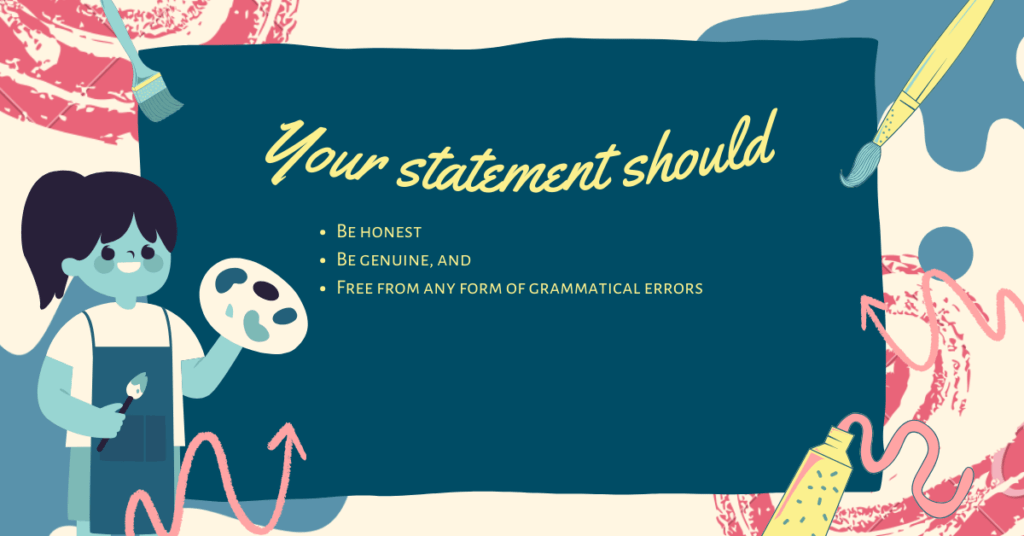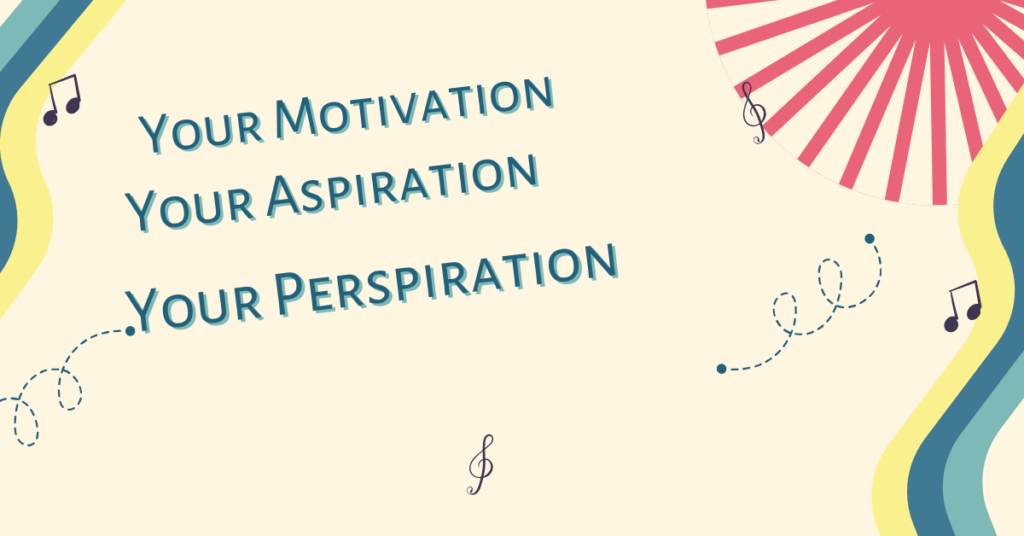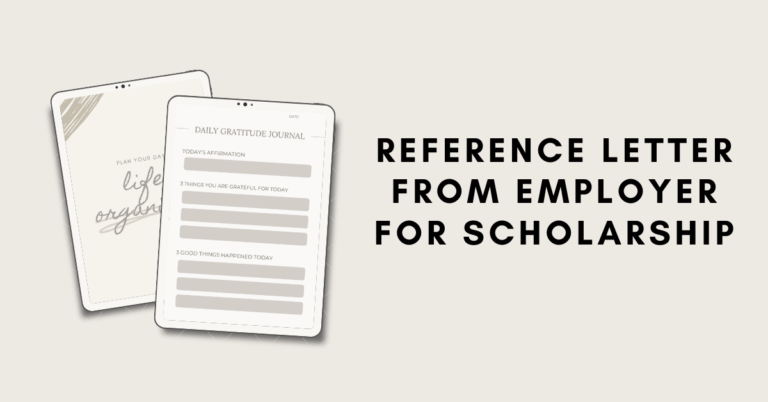The very essence of writing a personal statement is to ensure that you win that scholarship. But the process of writing can sometimes be difficult, especially not knowing what to write about. As an expert in scholarship affairs, I’ll work you through how to write a personal statement to get you noticed and, ultimately, win the scholarship.
A well-written personal statement helps you stand out from the crowd. It should be brief, concise, and contains necessary information about your personality and achievements.
When writing a personal statement for a scholarship, always ensure it is not too lengthy and filled with intricate words in order to ease readability.
The ideal word count for a personal statement should be between 500-800 words and not more than two pages.
Your personal statement should sound honest, genuine, and free from any form of grammatical errors in order to stand a higher chance of being given adequate attention. You can use a brief personal story about your life to capture the reader’s attention.
This content provides a general guide and personal statement that can help you write an effective and excellent personal statement for a scholarship for any university of your choice. Make sure you read till the end in order to get familiarized with it.

How to Write a Personal Statement
For your personal statement to be the best among other applicants, here are key elements you need to consider and include in your write-up.
Understand Scholarship Criteria for the Institution:
Each institution offering a scholarship program has different criteria for each program and course. Therefore, before writing your statement, you need to understand and get familiarized with their requirements and specifications.
A proper knowledge about this will help you in writing an excellent personal statement addressing those aspects with emphasis on how you meet and exceed those standards.
Passion and Motivation:
Start with an attention-grabbing and engaging introduction about your passion and motive behind the scholarship program.
Include in your write-up reasons why you are passionate about studying in their institution as against other notable institutions around the world. It should also include some motivational real-life experiences and stories that triggered your zeal and passion.
You might also like how to write personal statement for masters scholarship.
Academic Qualifications and Achievements:
You stand a higher chance of being awarded the scholarship if you show the screening committee how dedicated and competent you were in your previous studies.
It should contain your academic certifications/qualifications you have attained over the years to demonstrate your high level of academic commitment.
Include your Goals and Aspirations:
When writing a personal statement, it is crucial to state your personal goals (long-term and short-term goals) and how such a scholarship opportunity will help you in achieving these goals in the future.
Making your goals known will serve as a means of telling the screening committee how passionate you are about such a program.
Emphasize your Skills and Relevant Work Experience:
When writing your personal statement, never forget to include the necessary skills you have acquired over the years in your field of study.
If you have also acquired practical on-the-job training, it will also be wise to include them in the statement; this will definitely go a long way in securing your chances of being selected.
Write about your Personal Qualities:
Write out your personal qualities such as teamwork, resilience, adaptability, goal-driven, perseverance, etc., and share stories or instances of how you overcame some challenges or obstacles using these personal traits.
Community Impact:
This is one of the major areas scholarship screening committees look out for when reading the personal statement of applicants.
This should be given thoughtful consideration when writing a personal statement. If you are given the scholarship opportunity, what impact will you play in the development of the institution and the community?
What Are the 3 Parts of a Personal Statement?
There are three major parts of a personal statement you need to consider before beginning to write one for yourself, they are:
Motivation:
What are the motives or driving forces behind your choice of your career or the scholarship program.This is an essential part you need to consider before making any decision.
When your motives are correctly spelt out, it becomes easier for you to achieve both your long term and short term goals.
Aspiration:
This is your goal( Long term/short term) and what you intend to achieve after the completion of your course of studies.
This is also one of the crucial parts of a personal statement as it will help the reader understand how the opportunity you are applying for aligns with your goals.
When writing your aspirations,be specific about your career goals and the positive changes you intend to bring about.
Perspiration:
This should focus primarily on your skills and working experience and how hard you have worked recently to the development of your goals and contribution to the wellbeing of others.
When this is properly written, it becomes easier to convince the screening committee that you are the right person for such opportunity

FAQS
How Do You Start Writing a Personal Statement?
You should start writing a personal statement with a strong introduction about your personal details, your passion and the motive why you are applying for the scholarship program
What Is an Example of a Personal Statement?
This a personal statement templates / guidelines that shows you how you can write a personal statement effectively and efficiently in order to capture and win the interest of the screening committee
How Do I Structure My Personal Statement?
Your personal statement should be structured in such a way that comprises your passion/motivation, Academic Qualifications/Achievement, Goals and Aspirations, your relevant skill/work experience, personal qualities and the impact you will play in the community.
What Is a Good Opening Sentence for a Personal Statement?
Start with a well written introduction that will capture the reader’s attention. It could be a brief story about yourself or anecdotes that portrays why you developed interest or passion in a particular course of study.
What Are the 6 C’s Personal Statements?
The 6 C’s personal statement includes care, compassion, competence, commitment, communication and courage.
It is mostly written and used by the nursing profession.
Final Thought
A personal statement speaks about your personal identity; it is very easy and simple to write. It should contain a brief description of yourself, including your background, passion, educational qualifications, and work experience.
A well-written personal statement helps capture the reader’s attention faster and can give you a higher chance of becoming the best candidate for such a scholarship opportunity.
As an applicant, your main aim is to explain to the committee why you are one of the best candidates for such an offer. To do that, you need to carry out thorough research to find the mission of the institution offering that scholarship.
When writing, start with an irresistible introductory hook that will make readers want to read more. You can make use of relevant stories about yourself, funny anecdotes, or surprising facts.
A personal statement for a scholarship is not a formal academic paper; therefore, you should write it using your own natural voice and uniqueness, stating your points clearly.
Make sure to follow the specific guidelines listed above in order for you not to make any mistakes that will lead to you not being accepted by any institution as a result of a poorly written personal statement.






